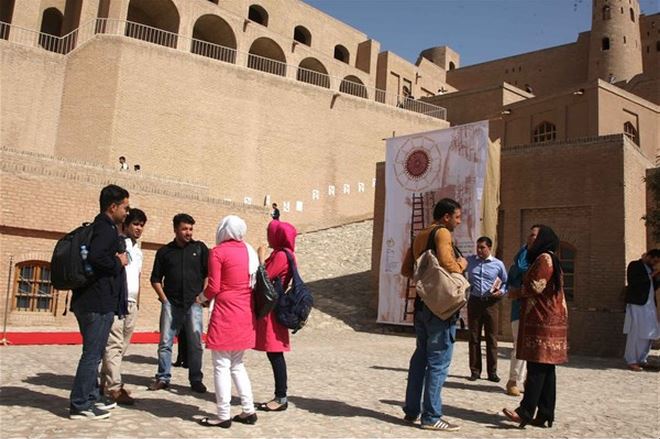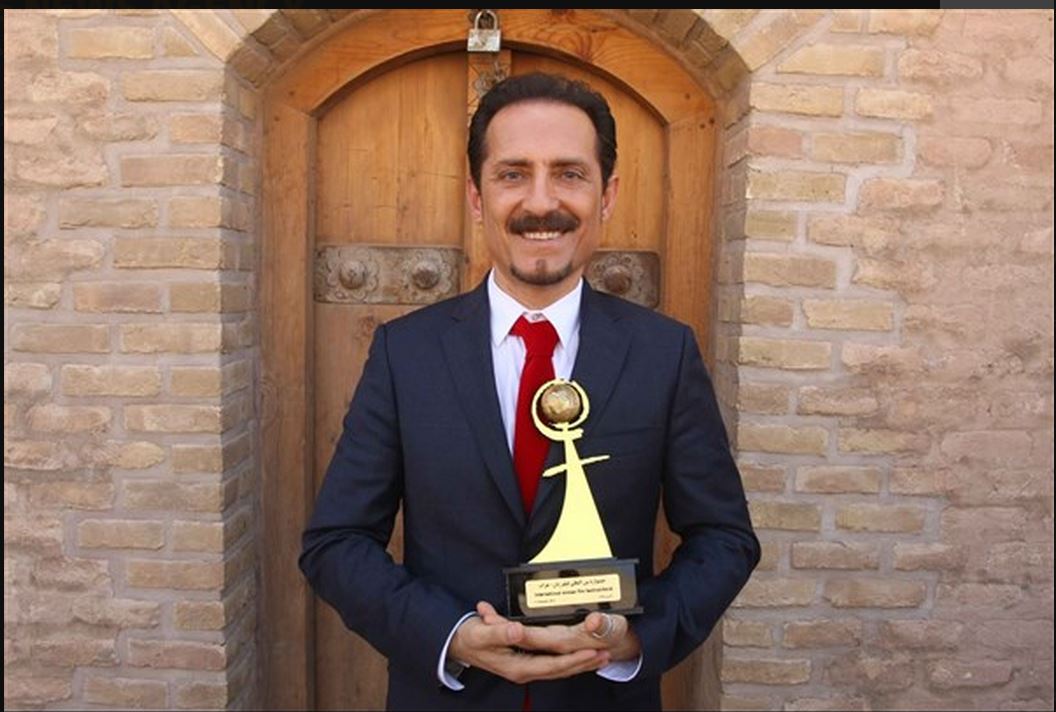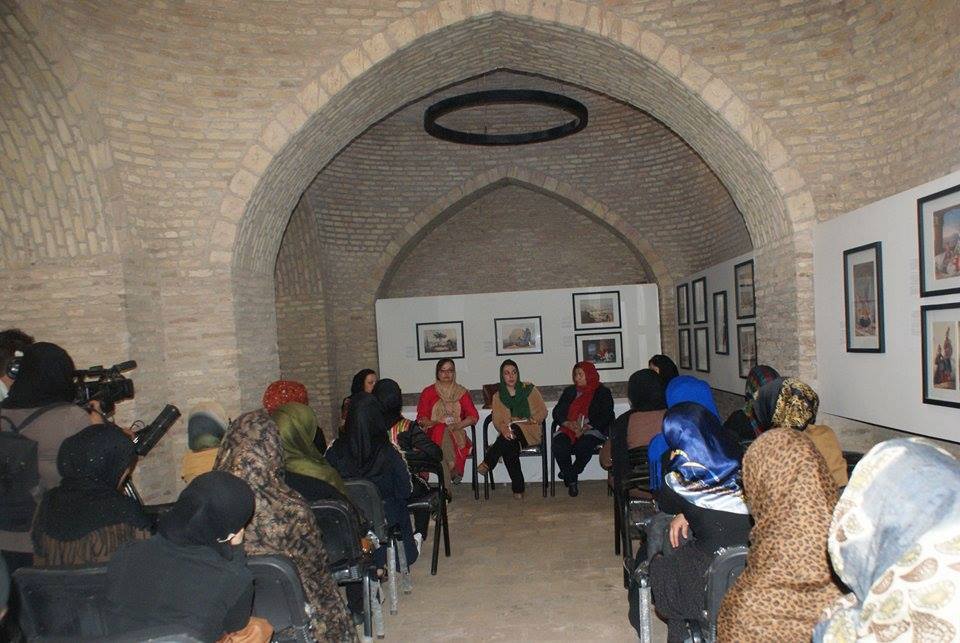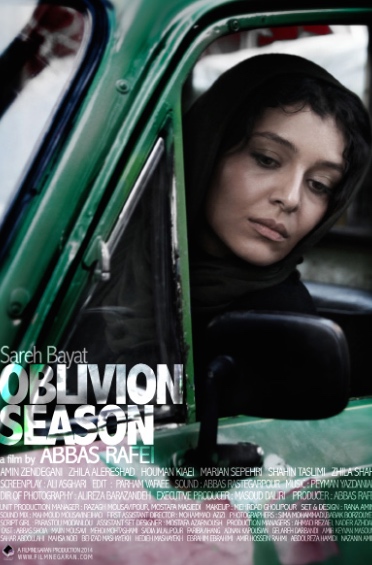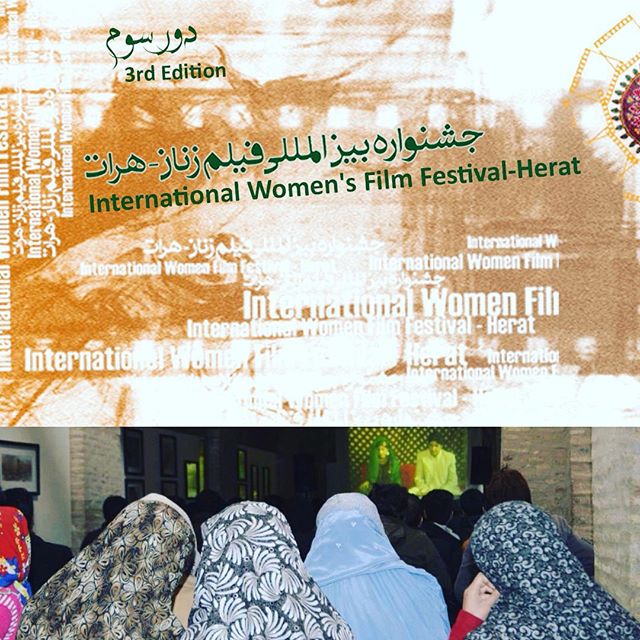 The 3rd edition of the Afghanistan International Women’s Film Festival (IWFF) was held at the ancient city of Herat, “the city without a cinema house” during 11-13 October 2015. The Citadel of Herat that has hosted the Festival since its outset became the venue of a gathering of cultural activists, filmmakers and other cinema workers, cinema lovers and women’s rights and freedom activists only on the opening day, owing to security issues that have intensified during the last month. Thanks to the cooperation of the Ministry of Culture of Afghanistan, two other halls were made available in the final two days of the festival, during which a total of 66 Afghan and international films were screened. (SEE Media links to the BBC, Deutsche Welle etc below).
The 3rd edition of the Afghanistan International Women’s Film Festival (IWFF) was held at the ancient city of Herat, “the city without a cinema house” during 11-13 October 2015. The Citadel of Herat that has hosted the Festival since its outset became the venue of a gathering of cultural activists, filmmakers and other cinema workers, cinema lovers and women’s rights and freedom activists only on the opening day, owing to security issues that have intensified during the last month. Thanks to the cooperation of the Ministry of Culture of Afghanistan, two other halls were made available in the final two days of the festival, during which a total of 66 Afghan and international films were screened. (SEE Media links to the BBC, Deutsche Welle etc below).
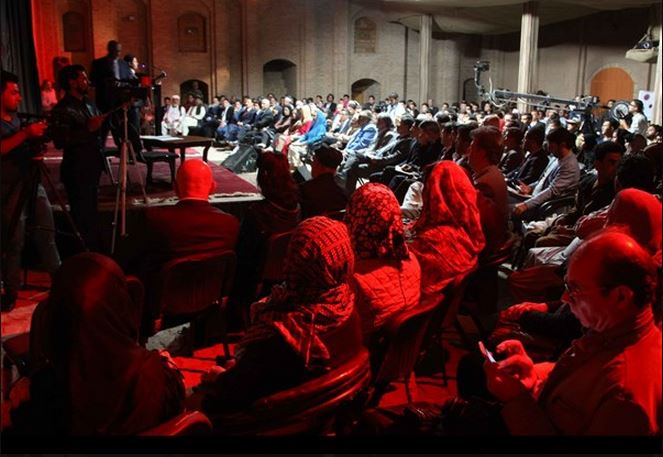
On the first day of the Festival, after the opening ceremony, a number of films were screened in the competition section and the famous singer of Afghanistan and UN appointed Ambassador for Peace, Farhad Darya, performed two songs celebrating women. The organisers awarded him with the statue of the Festival. (Watch an excerpt of song here)
A panel discussion was held in the afternoon, where Ms Massiha Faez from UN Women, Maria Bashir, former prosecutor of the province of Herat, Humira Saqeb, civil rights activist, and Sima Ghani, board member of Family Guidance Association discussed the issue of Violence against Women in Afghanistan. The discussions centred on the Law for the Prohibition of Violence Against Women, which would “reduce women’s vulnerability in the face of violence.”
On the second and third days of the festival, the competition section films were screened. At the same time, a photo exhibition of local artists was organised outside the screening halls, the central theme of which was discrimination against women. Other fringe programmes included two panel discussions and a filmmaking educational workshop.

A number of filmmakers and women’s rights activists from Afghanistan, India, the US and Italy were members of the jury. At the end of the third day, during the closing ceremony, high-ranking officials, cinema celebrities and Festival organisers presented awards to the winners. (See list of awardees here and details of films here). At the end of the third day, during the closing ceremony, high-ranking officials, cinema celebrities and Festival organisers presented the awards to the winners. (See list of awardees here)
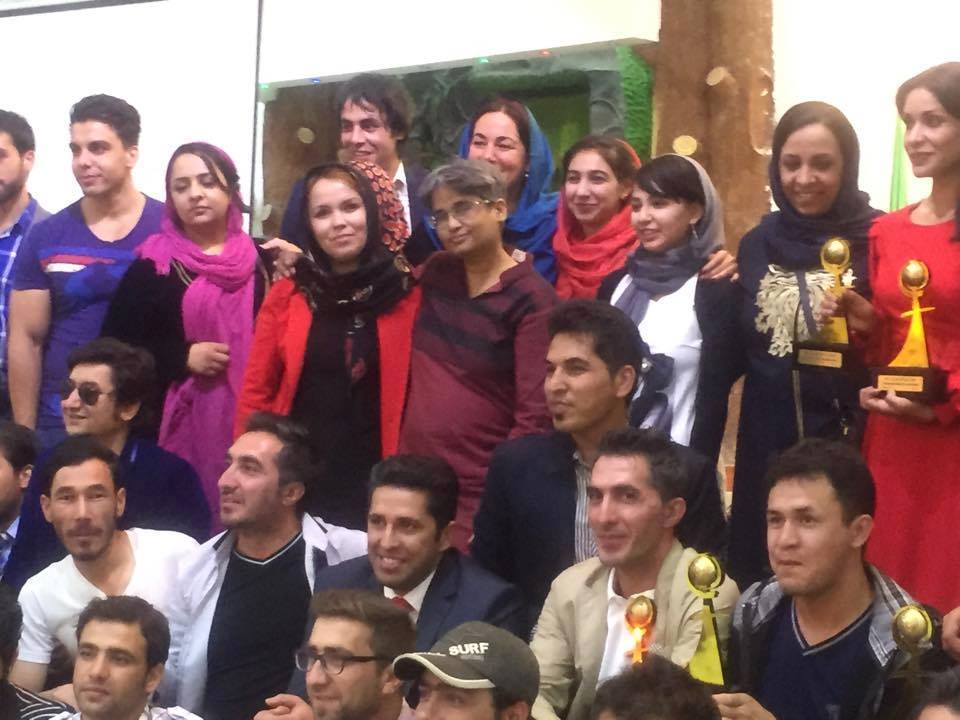
The organisation of this Festival in Herat entails specific messages. Herat, next to Kabul, is the most populous city in Afghanistan, an industrial centre and the most important cultural-artistic focal point of this country, which was the throbbing heart of greater Khorassan in the days when political force had not divided the Persian speakers. The city is renowned for its minarets and its architectural splendour. Herat became a member of the UN programme “1000 cities 1000 lives”. Many Persian speaking poets, writers, mystics and Sufis have been born or have lived in this city.
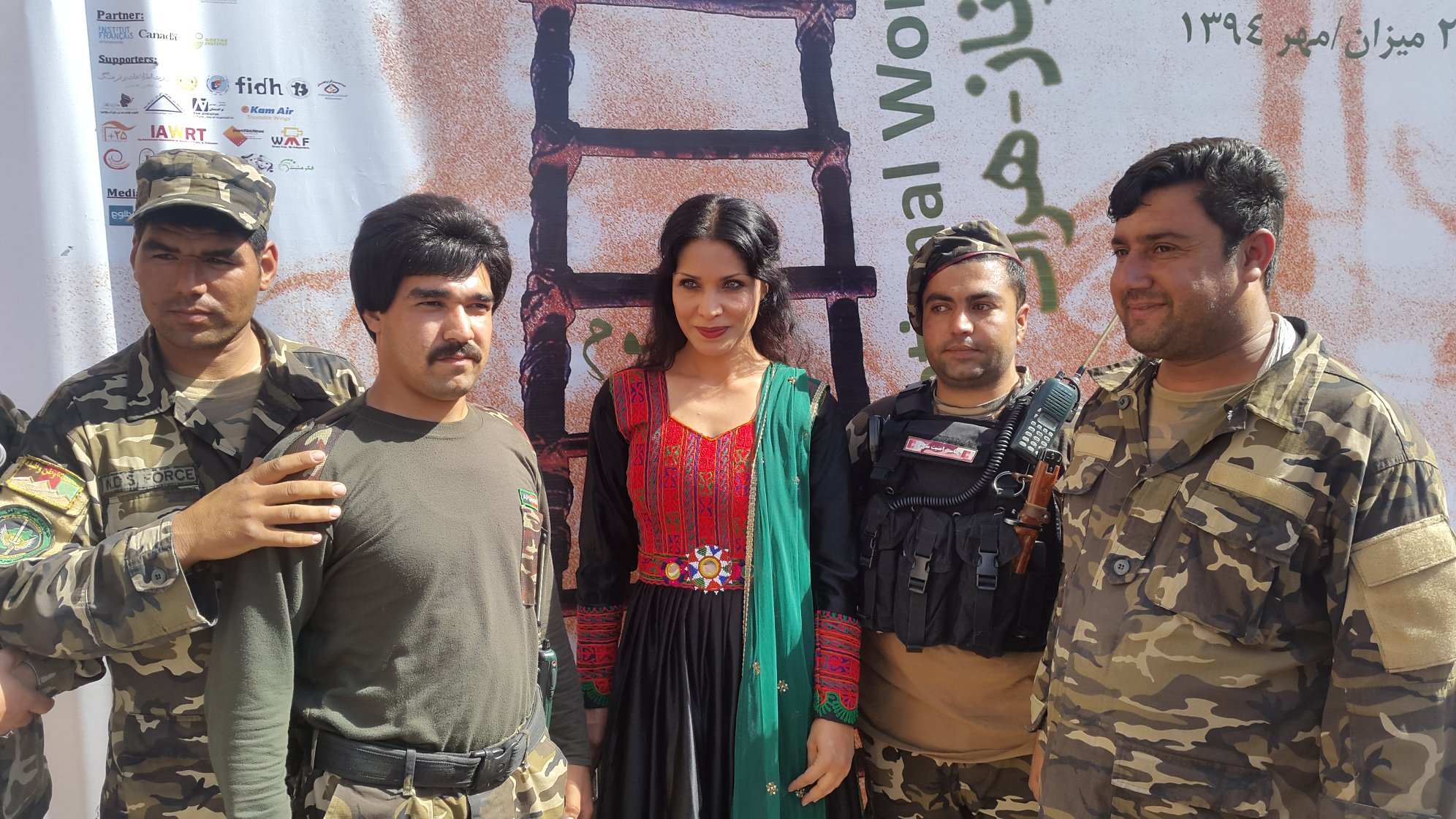
Herat is so significant that it was described as a pearl in the old days: “The world is an ocean and it has a pearl. Herat is that pearl.” It has also been called the “heart of Khorassan.” By choosing the Citadel of Herat, the message of the organisers of the Festival was that they do not seek to sanctify the past, but the past can host the progress of civilisation.
The principal message of the organisers is taking a position against violence against women that women suffer every day. The choice of the inauguration day to coincide with The International Day of the Girl Child was a pretext to underline the issue of discrimination against women in a region that has been engulfed with war and horror, where many women have become homeless in their own homelands.
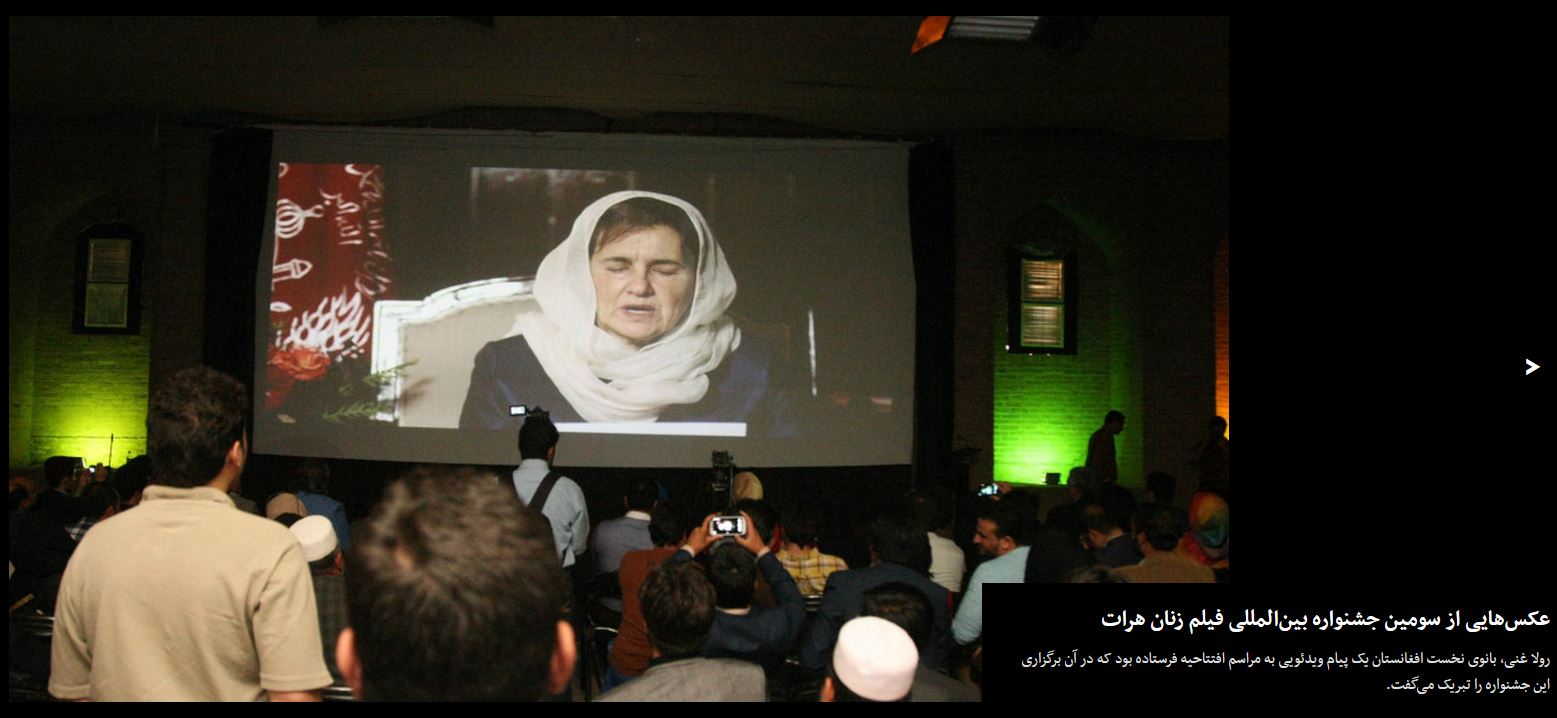 A video message of Rula Ghani, Afghanistan’s first lady, who has experienced war in her homeland, Lebanon, to the opening ceremony, carried the same content: “This Festival has taken the initiative to overshadow violence and war by means of art. We learn to live in peace and friendship. Our people wish to have peace and calm. I am sure that the message of this festival is ‘No’ to war and violence, and one of peace and empathy.”
A video message of Rula Ghani, Afghanistan’s first lady, who has experienced war in her homeland, Lebanon, to the opening ceremony, carried the same content: “This Festival has taken the initiative to overshadow violence and war by means of art. We learn to live in peace and friendship. Our people wish to have peace and calm. I am sure that the message of this festival is ‘No’ to war and violence, and one of peace and empathy.”
The main supporters of this Festival are the independent regional and international filmmakers who sent in 300 works for this edition.[*] Artists, civil society, the Governor of Herat, national officials and international bodies such as the International Federation for Human Rights (FIDH) are its other supporters. Several film festivals in Europe, India and Tajikistan also declared their backing.
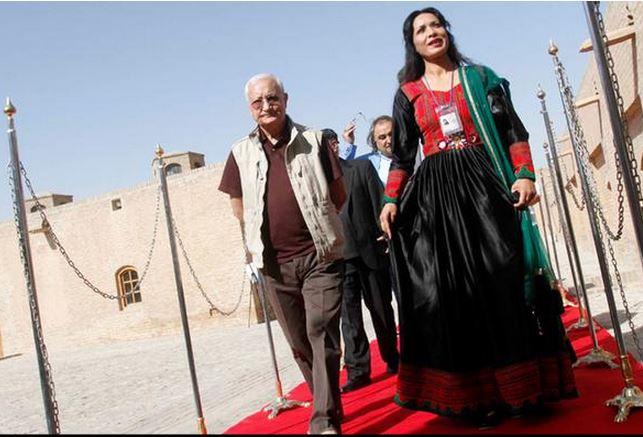 One of the most renowned writers of Afghanistan, Rahnavard Zaryab, who attended the Festival, expressed his regret for absence of cinema and theatre in Afghanistan and described the IWFF as a clear example of combination of women and cinema.
One of the most renowned writers of Afghanistan, Rahnavard Zaryab, who attended the Festival, expressed his regret for absence of cinema and theatre in Afghanistan and described the IWFF as a clear example of combination of women and cinema.
It is worthy of reflection that there are few women filmmakers even worldwide. The ratio of women in modern Hollywood-style cinema is negligible in comparison to men. Women actors reproduce the sexual clichés, which are too common worldwide. The IWFF, however, is endeavouring to present the grievances of women to the public and to possibly build culture by reiterating the bitter narratives of women. It is through culture-building that war, violence and discrimination can be brought to an end.
In this third edition of the Festival, the spectators joined in the discussions on the fringes of the screenings to bring women and cinema together. The extensive participation and support of the public, young, old, men and women, clearly indicates the significance of the absence of cinema and joyful cultural gatherings for the people of Afghanistan; in a city that was once the heart of the greater Khorassan, whose only cinema was destroyed by the Taleban. One may dare say that many people in this city have heard only the word “cinema”, but thousands have enthusiastically welcomed it during the three editions of this festival.
Armanshahr/OPENASIA and Roya Film House are the founders of this IWFF, who have managed to organise the only women’s film Festival with great efforts at the heart of Asia in recent years, despite great security risks. This takes a courage that may not be feasible in other neighbouring countries. Women of Asia did not have a festival of their own and this festival has opened the way for them to send their works to Armanshahr and Roya Film House for joint screening.

The co-organisers of this Festival, Armanshahr/OPEN ASIA and Roya Film House, are certain that, if the behind-the-scene political games allow it, people offer a different political and social narrative of the situation in Afghanistan; a narrative different from that offered up to now by the fanatics and their international partners who dominate the big media.
Guissou Jahangiri, Executive Director of Armanshahr Foundation, and co-founder & director of the Festival along side with Roya Sadat, expresses her praise for the “beautiful cooperation” between the two organisers of the Festival, adding: “This experience is per se very valuable, because it is a venue for the reunion of the like-minded people in the region. In a geographical expanse, where the statesmen talk the language of war, our initiative illustrates that women use the language of culture to talk to each other. This endeavour of aware women, in a region where everybody is suspicious of one another, will lead to creation of trust and culture building. The extensive participation of the people during three editions of the Festival in three years proves the need for it. We must underline the women’s issue by every means in our capacity. Endeavours of this type can incite everybody and bring self-confidence to women.”
Roya Sadat, Director of Roya Film House and co-founder & director of the Festival, herself a film-maker, recalls: “Our goal in organising this Festival is to introduce works of women and bring together women and filmmakers who pay special attention to women and their rights. The first and foremost goal is to show the works to the audience concerned with cinema. The Festival is a channel to inform the women of Afghanistan and participants from other countries about the experience of women in different countries and offer them a model to use to improve their situation and to combat social discrimination.”
[*] Thousands of films have been received during the three editions of the Festival.
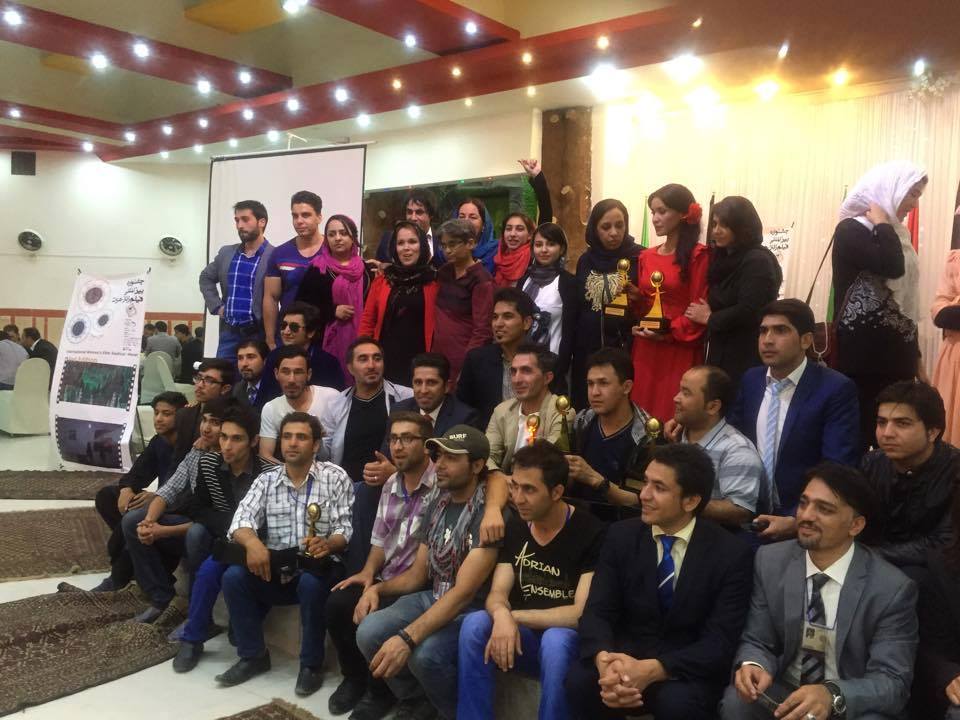
SEE BBC Photo Album of Festival HERE
SEE Deutsche Welle Photo Album of Festival HERE
SEE FARS NEWS AGENCY Photo Album HERE

